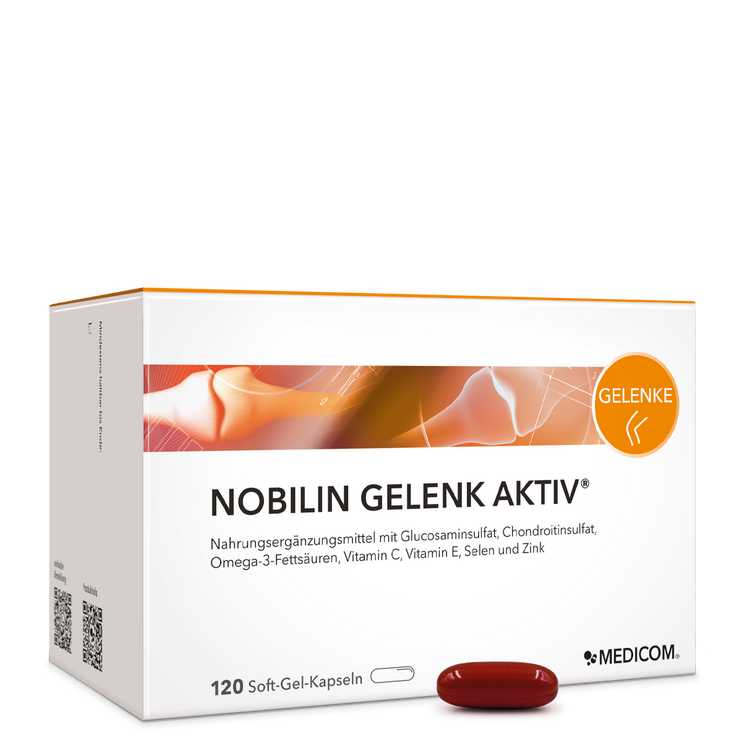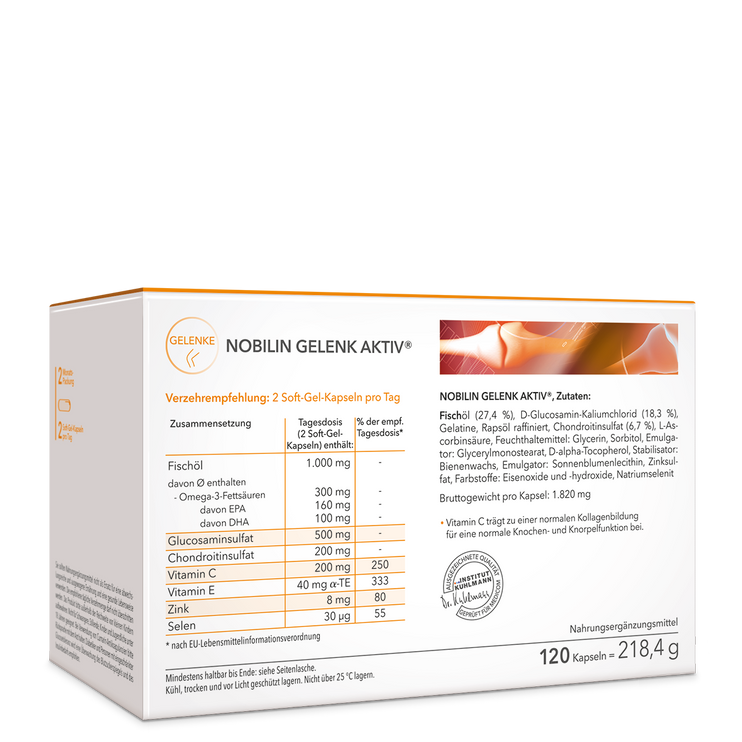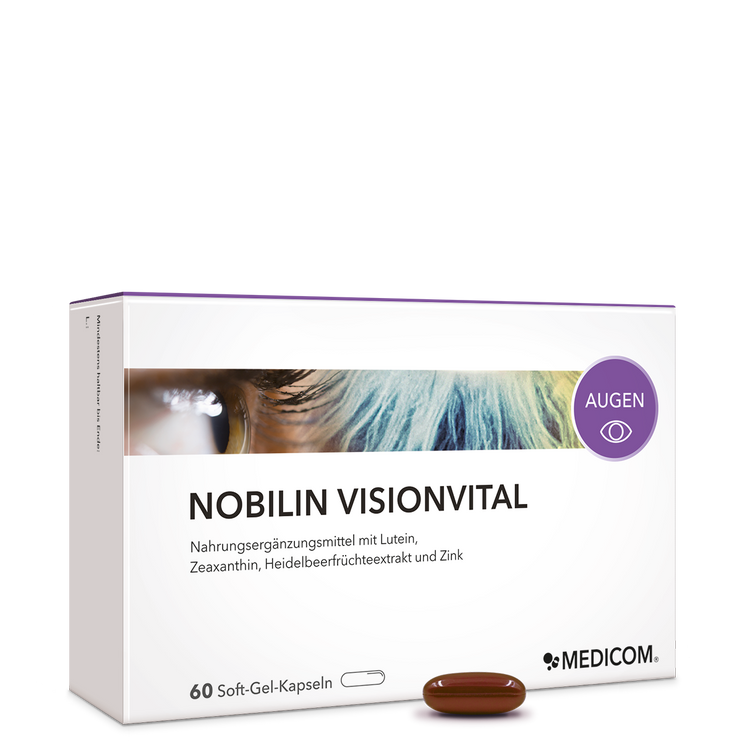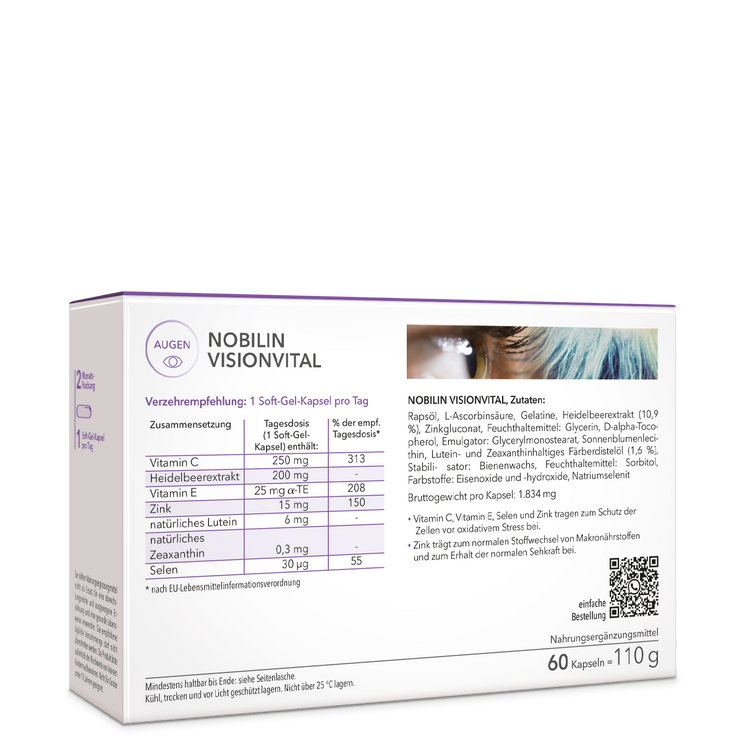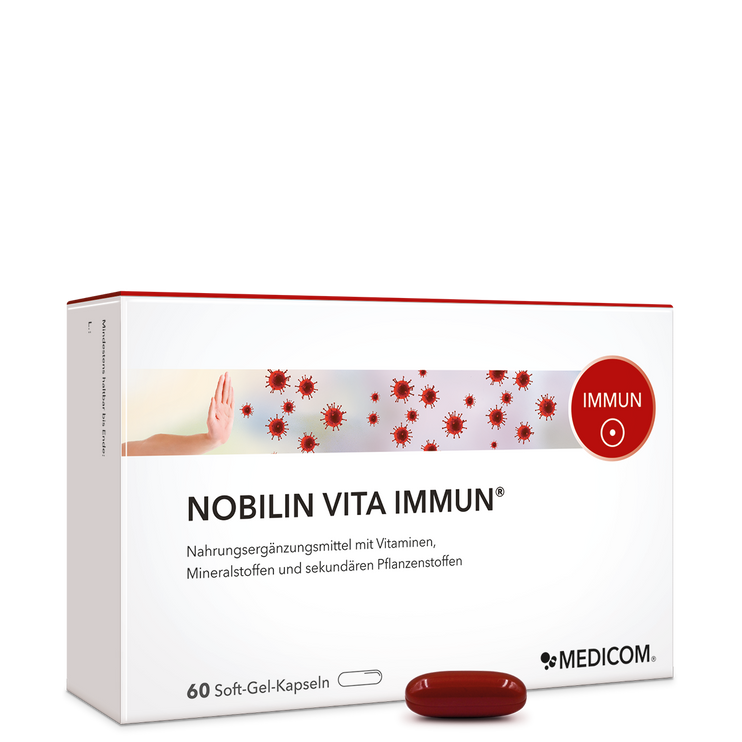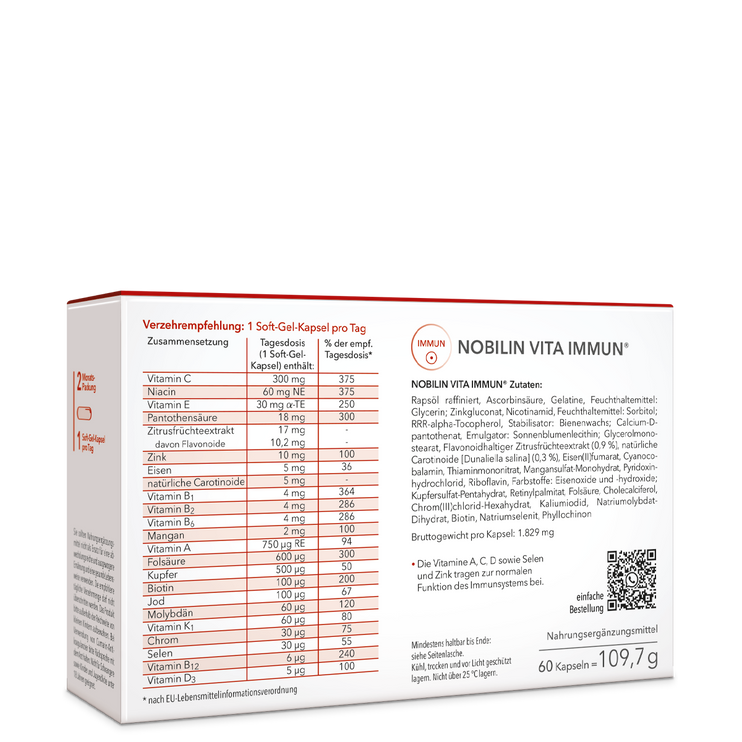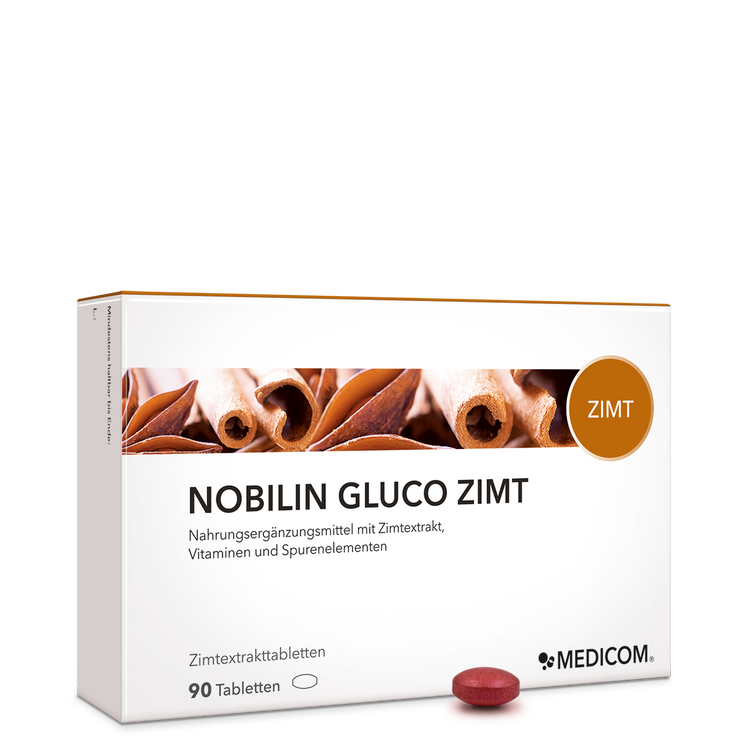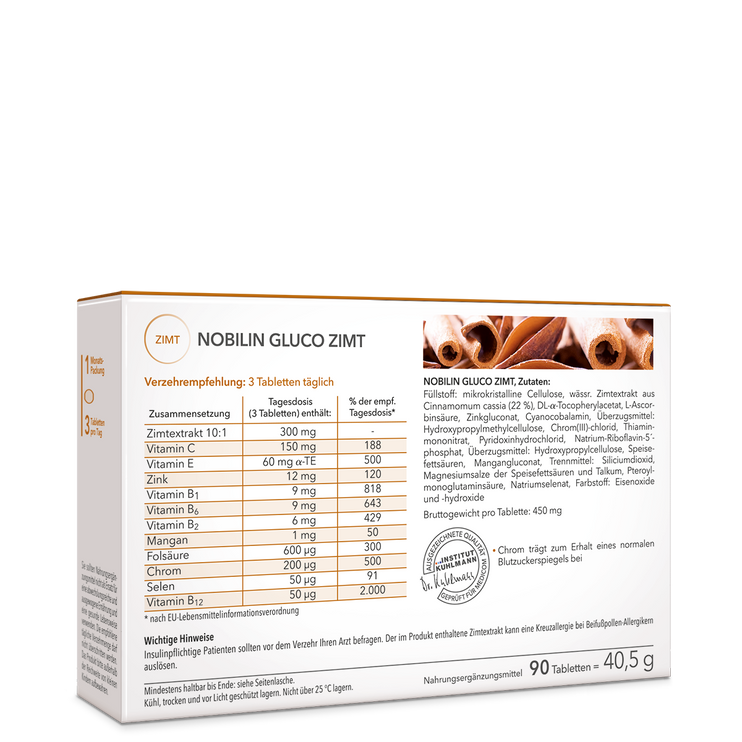Vitamin E is the name given to eight chemically closely related substances – four so-called tocopherols and four tocotrienols. The most effective of these isAlpha-tocopherol(natural tocopherol). The outstanding property of this vitamin is theAbility to scavenge free radicalsand render them harmless. Vitamin E not only protects vegetable oils and margarine from going rancid, it also protects cell structures in the body from oxidation by free radicals.
Other functions of vitamin E
In addition, vitamin E protects theLDL cholesterolin the blood from harmful changes caused by oxygen radicals. Furthermore, vitamin E promotes blood circulation, keeps the blood vessels in a healthy condition andcan prevent blood clots (thrombosis)In this way, vitamin E contributes to the functioning of the cardiovascular system. The fat-soluble vitamin also provides additional protective functions for another fat-soluble vitamin –Eye vitamin A.
Use of vitamin E
Shortage situations: reduced absorption due to fat absorption disorders (disorders of bile production) and chronic inflammatory bowel diseases.
Prevention of cardiovascular diseases: Vitamin E reduces the oxidation ofcholesteroland thus counteracts the tendency towards cholesterol deposits in the arteries.
rheumatism: Vitamin E is often used as a supportive measure in anti-inflammatory drug therapy. High doses of vitamin E can reduce inflammation and stiffness of the joints. In addition, the administration of vitamin E can sometimes reduce the dosage of drugs with high side effects.Antirheumaticsbe reduced.
competitive sport: Intensive exercise can lead to oxidative stress, which can be reduced by vitamin E.
Medicines/environmental toxins: Since some medications as well as environmental toxins cause the increased formation of free radicals in the body, vitamin E can have protective effects here.
Premature aging: Premature signs of aging are usually caused by harmful influences - such as car and industrial exhaust fumes, frequent alcohol consumption and cigarettes. Thanks to its antioxidant properties, vitamin E can reduce damage caused by constant oxidative stress.
Which foods contain vitamin E?
Larger amounts of vitamin E are found in vegetable fats and oils, avocados, nuts and sunflower seeds.
Am I lacking vitamin E?
If one of the following applies, supplemental vitamin E intake could be useful for you:
- usehardly any vegetable oils, such as wheat germ oil?
- Consumeonly very rarely nuts, sunflower seeds, sesame or other seeds?
- Are you increasinglyExposure to pollutants from the environment– for example as a result of smog, ozone or car exhaust fumes?
- Do you suffer fromchronic inflammation(e.g. rheumatism, arthritis, chronic inflammatory bowel disease)?
